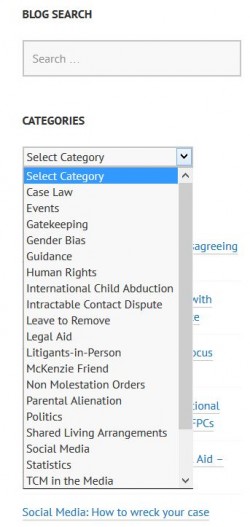A new study looks at the experience of solicitors representing adults with learning difficulties in care proceedings. The study relates to UK proceedings (in case there’s any confusion about the author of the article being based in Australia).
Read the article: Parents with learning disabilities: Solicitors critical of assumptions and prejudice in the system
We won’t repeat the article but recommend you read it and we’ll move on to matters relating to litigants-in-person with specific learning difficulties in private family law proceedings. Continue reading Learning Difficulties, Disadvantage and Family Law










